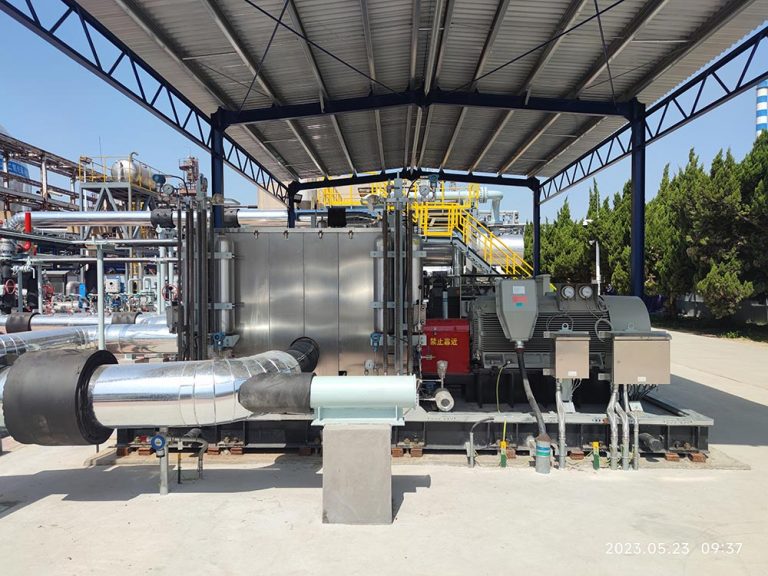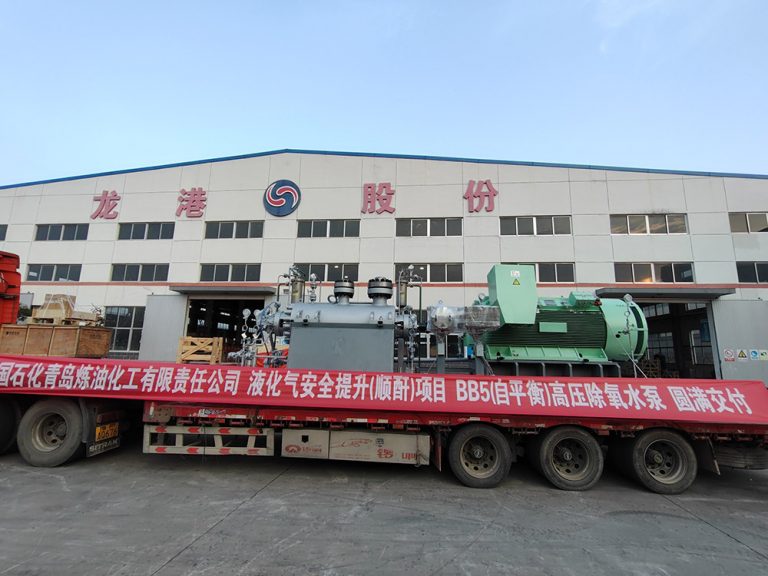Reliability in the oil and gas industry is not an option but a must for the operational continuity at the face of harsh environments of machinery operation. API 610 pumps enjoy a reputation for their reliability in hostile environments, because their design meets standards that can overcome the challenges posed by this very industry for maintaining safety during operation.

Introduction to API 610 Standards
To understand how API 610 pumps realize the highest degree of reliability, one must appreciate the standards they support. These are not just specifications, but a foundation to ensure that products operate dependably in hostile conditions.
What is the API 610 Standard
API 610 is a guide designed by the American Petroleum Institute that stipulates the minimum requirements for the design and testing of centrifugal pumps used in the petroleum industry as well as in other related fields like the petrochemical and natural gas industries. It holds credibility within the field because of the expertise and influence of API in the oil and gas domain and is considered a global benchmark for centrifugal pump standards in these industries. The global counterpart to the API 610 standard is ISO 13709. Both standards are synchronized to maintain a worldwide approach regarding the specifications for such pumps.
API 610’s Role in Ensuring Pump Reliability
API 610 is primarily responsible for ensuring the quality and performance of pumps so that they will provide long-term, reliable operation in severe industrial processes. The standard addresses the engineering guidelines for the design of the pump, testing procedures and recommendations for base installation. For manufacturers of pumps, compliance with API 610 is crucial as it guarantees the quality and performance of their offerings while instilling confidence in end users about the efficient operation of the equipment. A good example could be Yantai Longgang Pump Industry Co., Ltd., which is committed to the production of high-quality pumps that meet API requirements. It was established as a professional company, producing high-quality pumps and follows the API Q1 system for management and maintains standardized assembly procedures to meet customer expectations effectively. It produces a range of API pumps that include types, such as axially split double-suction centrifugal pumps, radially split single-stage/double-stage between-bearing pumps, horizontal split multi-stage pumps, single-stage cantilevers and vertical suspended single-shell pumps.

Design and Construction for High Reliability
API 610 pumps’ dependability goes beyond testing. It’s ingrained in their design and build quality. They are crafted to withstand harsh environments and deliver reliable performance by emphasizing material choices and unique design elements.
Material Selection for Extreme Conditions
Selecting the right materials is key for the longevity and dependability of API pumps, which must endure conditions like high pressure and corrosive substances at work. To overcome these hurdles, API pumps typically use steel variants, such as carbon steel and special blends, according to industry standards. This ensures they can cope with the demands and chemical challenges of their operational settings.
Robust Construction and Design Features
The creation and building of API pumps are known for qualities that guarantee dependable and sturdy operation with certain essential construction components being:
API pump casings are commonly constructed with a dual volute layout to minimize thrust forces near the impeller and shaft area.
The mounting feet are made to allow for expansion and are usually placed in the middle of the casing horizontally rather than at the bottom part of it. They extend out from the casing’s sides and are attached to supports that come up from the baseplate.
Bearing housings are designed with construction and feature a method for cooling the bearings, which typically involves the use of cooling jackets.
Rear Cover Configurations: These create a secure seal using a compression gasket with metal-to-metal connections to improve emission control.
Addressing Temperature and Pressure Challenges
API pumps are designed to handle the challenges posed by heat and pressure efficiently. They are equipped with sealing techniques to reduce leaks and enhance maintenance schedules, which is a crucial aspect in scenarios dealing with dangerous and corrosive substances. API pumps come with temperature thresholds that can withstand diverse industrial needs. Their materials and design elements play a role in upholding performance standards within these temperature parameters.
Testing and Quality Assurance
Quality control and testing play a role in guaranteeing the dependability of API 610 pumps, ensuring they conform to the necessary performance and safety criteria.
Rigorous Testing Protocols
API pumps are subjected to testing procedures, such as performance assessments and durability tests to ensure they meet industry standards and regulations. These tests effectively evaluate the pump’s performance in challenging operational environments.
Ensuring Performance and Compliance
The pumps created by the API 610 standard, undergo examinations to ensure they satisfy the designated performance standards and conditions laid out for them. This level of quality control offers operators a sense of assurance and minimizes the chances of unforeseen interruptions or machinery breakdowns.
Operational Reliability and Maintenance
API 610 pumps are known for their durability and longevity, which can be maintained through proper upkeep. This ensures they function reliably over time and deliver consistent performance.
Maintenance Requirements for API Pumps
API pumps usually need maintenance because they are used in critical applications with high operational demands. Regular checks and servicing of parts are part of the maintenance routine for API pumps. Following API standards may involve record-keeping of maintenance tasks to maintain reliability and efficiency over time.
Minimizing Downtime and Ensuring Longevity
Durability and adherence to API standards imply that API pumps have longer lives and require less maintenance. Additionally, their reliability in challenging environments enhances operational efficiency in the long run by minimizing unexpected downtimes. This makes the initial investment worthwhile with their sophisticated monitoring systems and durable components adding value to their cost-effectiveness.
FAQs
1. How do API 610 pumps compare to other varieties of pumps?
API 610 pumps follow strict guidelines on the design and fabrication from the American Petroleum Institute. Thus, this makes them much capable of operating effectively in extreme situations involving high-temperature and pressure applications using heavier-duty materials. Compared to a non-API pump, its performance will therefore be less optimal.
2. How does this design make the API 610 pumps reliable?
The API 610 pump design incorporates such features as double volute casings for the reduction of thrust forces, and mounting bases capable of readily accepting expansion needs without complication; rugged bearing housings fitted with cooling provisions, and rear cover designs intended to eliminate leakage.
3. Why should I consider an API 610 style pump for my application?
API 610 pumps are designed to handle corrosive liquids at high temperatures and pressures for much safer and efficient operations with minimal chances of downtime.








